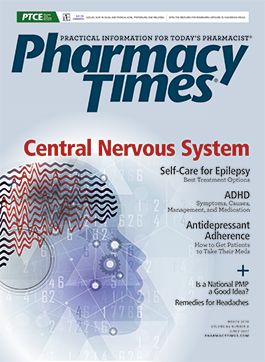Publication
Article
Pharmacy Times
National PMP: A Good Idea for Reducing Rx Diversion?
Author(s):
It seems as if every couple of years, someone advocates anew that the prescription monitoring programs run by 49 states be consolidated and put under a national program.
It seems as if every couple of years, someone advocates anew that the prescription monitoring programs (PMPs) run by 49 states be consolidated and put under a national program. Not surprisingly, this issue has come up once again, with some strong advocacy behind it.
When this idea of a national PMP was first introduced many years ago, its sponsors wanted to call it NASPER. I no longer even remember what this acronym stood for, but it was pushed by health care workers and politicians alike. The idea was to put all the prescription drug information from all states into a big database. This would then provide those who had legitimate access to the national PMP a prescription drug profile for any person anywhere in the country.
I understand why the idea of a one-stop shop of prescription drug profiles for the entire country makes sense to many people. Health care workers, police officers, and others would not have to worry if a patient or suspect was doctor-shopping in Alaska and Florida at the same time because this national PMP would alert them. Why would anyone be opposed to this idea?
There are many reasons. I have been consistently opposed to the idea of a national PMP, which I think would effectively ruin the magnificent work that individual states have done over the years. I am fortunate to live in Ohio, a state that has one of the best, if not the best, PMPs in the nation. In Ohio, it is the Ohio Automated Rx Reporting System. Our southern neighbor has the Kentucky All Schedule Prescription Electronic Reporting system. Both are highly effective PMPs and are the result of the great work of Danna Droz, who now works for the National Association of Boards of Pharmacy (NABP).
Both programs were developed with a lot of sweat and maybe a little blood and are finely tuned machines. Of course, mistakes can be made when pharmacies enter data, and those looking at the files are reminded to not take the information as an absolute. The information is a starting point, and more investigation is advised and often necessary, though this sometimes goes unheeded. In short, a PMP report is just 1 tool and should not be the only source of information.
If there was a national PMP database, a huge amount of misinformation could be accidentally entered into the system. The potential for many errors, some of them with profound consequences, should give pause to anyone who supports a national database. A national PMP would likely result in a number of lawsuits, which could cause it to shut down, rendering the whole idea useless.
The NABP has a program called PMP InterConnect (nabp.pharmacy/initiatives/pmp-interconnect/) that allows users to connect with other states that have agreed to participate. The truth is that if I have someone doctor-shopping in Ohio, the chances that they are also committing these same crimes in Utah are extremely remote. However, especially with Cincinnati sitting on the border with both Indiana and Kentucky, if I can reach those states’ PMPs, I can access a realistic data source that can often assist me in my investigation. PMP InterConnect allows me and other Ohio users to do this.
State PMPs work tirelessly to make sure their information is accurate. This is no easy task and likely something that keeps the heads of these state PMPs up at night. Multiply this by 50, and it is easy to imagine the pitfalls that a national PMP could encounter.
Let’s not destroy the incredible work that has been done by individual states and the NABP by creating a mammoth federal government program that will never survive the legal test. The system is working right now, so let’s not fix what is not broken.
Cmdr. John Burke is a 40-year veteran of law enforcement, the past president of the National Association of Drug Diversion Investigators, and the president and cofounder of the International Health Facility Diversion Association. He can be reached by e-mail at [email protected] or via rxdiversion.com.

Newsletter
Stay informed on drug updates, treatment guidelines, and pharmacy practice trends—subscribe to Pharmacy Times for weekly clinical insights.






